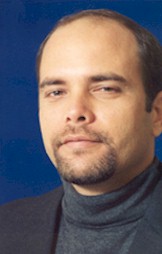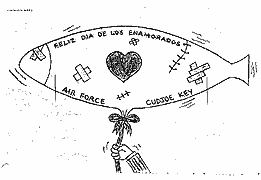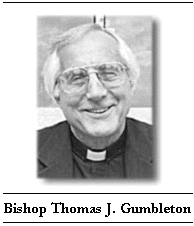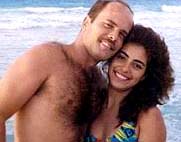ENTREVISTA A GERARDO HERNANDEZ NORDELO (EN INGLÉS)

La más reciente entrevista a Gerardo!!!!
from www.freethefive.org
Transcript of the interview
Special to freethefive.org
July 2, 2007
Transcription by Steve Patt and Gloria La Riva,
National Committee to Free the Cuban Five
Portions of this transcript in [bracketed italics] are part of the 16-minute raw audio and were not part of the 10-minute edited broadcast. The more limited transcript of the 10-minute portion only is online here.
Claire Bolderson: Well next month, a court in Florida is going to hear an appeal in a case that sums up much about the relationship between the United States and Cuba. Gerardo Hernández and four other Cubans were convicted in Florida in December, 2001 [sic: June, 2001] on a range of charges including trying to obtain U.S. military secrets, spying on Cuban exile groups, and, in Mr. Hernández' case, conspiracy in the deaths of four Cuban-Americans whose planes were shot down by the Cuban government in 1996.
Gerardo Hernández is serving a double life sentence, but he argues that all he was trying to do was protect Cuba from what he calls "terrorist groups," anti-Castro organizations based in the U.S. He and his fellow defendants also argue that their trial was unfair because of the anti-Castro mood in Florida where it was held.
In the first-ever media interview given by any of the five prisoners, I spoke to Mr. Hernández on the telephone from his maximum security prison in Victorville, California, and asked him to explain his story from the beginning.
[Claire Bolderson: Mr Hernandez, I know there has been a lot of concern about your treatment in prison and the time you spent a while ago in solitary confinement. Can you describe for me how you are being treated now, what the conditions are for you in prison?]
[Gerardo Hernández: Well, I'm a regular inmate in a US penitentiary and I would say that the worst part of my treatment has not to do with the prison but with the government of the US. I would say that the worst part of my imprisonment is that I haven't been able to see my wife for the last ten years, because the US government doesn't grant a visa to her to come to visit me. That's one of the things, and I would say that for the rest of the things, you know, it's a prison and I am an inmate like every other and it's not easy to be an inmate, but I'm doing alright.]
[Claire Bolderson: Are you saying then that you have had no family visits at all?]
[Gerardo Hernández: Well, I have received some family visits - my mother and sister have been able to come, but in the case of my wife, my wife of nineteen years, she hasn't been able to come to visit me because she has been constantly denied a visa to come. So I haven't been able to see her for the last ten years.]
CB: [You were convicted on a number of counts, including one of them was trying to obtain US military secrets, by trying to infiltrate a base, and for acting as an unregistered agent for a foreign government.] Can you explain to us what you were doing in Florida in the first place?
Gerardo Hernández: Well in the first place, I was gathering information on terrorist groups that used to operate in Florida with total impunity. [They are people that have got training camps there and paramilitary organisations and they go to Cuba and commit sabotage, bombs and all kinds of aggressions. And as I told you, they have had impunity.] So at a certain point Cuba decided to send some people to gather information on those groups and send it back to Cuba to prevent those actions. And in 1998, Cuba passed to the FBI some information regarding those groups, hoping that the FBI would do something against them. And unfortunately, what they did was arrest the people that had gathered that information. [As for the military part, I was charged with conspiracy to commit espionage, and that was because there wasn't espionage at all. In our trial that lasted seven months, there were three or four retired generals from the US army who testified that there was nothing related to espionage in this case, but since the trial was in Miami and we couldn't have a fair trial. We were found guilty, but I reiterate that it was a conspiracy because the government said, "Wait a minute - they didn't commit espionage, but they would have tried to commit it sometime," so that's the conspiracy to commit espionage, but not a single piece of secret information, nothing related to the national security of the US was gathered or transmitted.]
CB: But you do acknowledge that you were working as an agent for a foreign government, and in one of your defense statements you do say that you were working with false documents, false identity documents?
GH: Yes, I do acknowlege that.
[CB: But that's quite a serious thing to have been doing then, isn't it?]
GH: [Yes, it is,] but there is something called "necessity defense," that says that if [in order to prevent a wrongdoing], in order to prevent crime you have to violate a law, you can understand that. In my case, yes I had fake I.D., I was working for foreign government, but not to affect the U.S. interests, but to defend Cuban interests, to defend the Cuban people from terrorism.
CB: And the crimes you were trying to stop, what exactly were they, the crimes?
GH: Well, for example, in 1997, a bomb exploded in a Cuban hotel and killed [Fabio Di Celmo], an Italian tourist. And in 1976, as you know, a bomb exploded in a Cuban airplane and killed 73 people. And that's only two examples of terrorist acts committed against Cuba. Anybody who lives in Miami, [who see the TV, the local TV station or radio station] they know what Comandos F-4 is, and they know what Alpha 66 is [and they know what Brothers to the Rescue is.]
[CB: And what are those, can you explain to me, what are those names?]
[Yes, they used to be called paramilitary groups. I call them terrorist groups.] They have got training camps in the Everglades, they dress in camouflage, and have weapons, and they train for the day they're going to "liberate Cuba." They used to go to Cuba in boats and fire at Cuban buildings and they tried to organize an internal sabotage and all kind of actions. [That is public record - you check the Miami newspapers, you can see that. You can see that they get involved and go to Cuba and do some shootings and they go back and are received like heroes and, for example, in our trial, we presented some witnesses, we subpoenaed the Coast Guard and we subpoenaed the FBI and we presented the evidence of the impunity that these people have. We asked, for example, to a Coast Guard official, "Is it true that this day you intercepted a group that was heading to Cuba with some weapons and explosives?" "Yes, it is true." "Is it true that you just took the weapons and freed the guys?" "Yes." "Why?" "Well, because they said that they were fishing for lobsters." Something like that happened in our trial and it's not a single case - there's a long record of terrorist aggressions against my country. So the Cuban people have the right to defend themselves against terrorist actions.] Hopefully the U.S. government and the U.S. authorities will do something, because they say they have a war against terrorists, but why are you going to allow those terrorists to operate freely in Miami? [Recently, just a month ago, the guy who masterminded the bomb on the Cuban airplane that killed 73 people, he was set free and he's free now in Miami.]
CB: There is one very contentious charge on which you were convicted and the reason why you are serving such a long sentence the shooting down by Cuba of two civilian planes from the United States in 1996. Did you have any role connected to that?
GH: No, absolutely not. [But you have to understand what really happened. The person leading those planes is called José Basulto, he was a CIA operative in the '60s, he was infiltrated into Cuba to do sabotage. After that, in 1962, he went back to Cuba from Florida in a boat and he fired a cannon against a Cuban hotel, went back to Miami and was received like a hero. And he has a long history of terrorism against Cuba, and at some point in his life he said "Alright, I'm going to be a humanitarian now, I want to get this small plane and fly inside Cuba with no permission at all and drop leaflets and propaganda," and he did it, like, sixteen times. And Cuba sent to the US sixteen diplomatic notes, which were presented in our trial, complaining to the U.S. and saying, "Hey, these people are violating international laws, U.S. laws, Cuban laws." The Cuban MIGs used to take off and escort those people out and Cuba used to say "Hey, don't do it anymore, you are putting in danger our own aviation, our population, everything."]
[CB: That may have been wrong, and I'm sure there have been many diplomatic arguments about it, but what I'm interested in is what you did about it?]
GH: [Nothing!] I was in Miami and the plane was shot down in Cuban waters, a long way away [from me].
CB: So you didn't pass any information that would have helped the Cuban government to shoot down the planes?
GH: No, of course not. If you go to the records of those times, you will see that José Basulto announced way before the trip, he said "we are going there on February 24." Everybody knew that. [We presented in our trial a memorandum from the U.S. government, one agency, the Federal Aviation Agency, telling their people "Hey, he's going to do that on February 24th, we are concerned that something is going to happen, because Cuba already said if they do it again, they're going to be shot down, so we'd better have all the ducks in a row," that's actually what the memo said. So everybody was expecting that something would happen, we even in our trial, Richard Nuccio, the former advisor to President Clinton, he was at the trial and said, "Yeah, that organisation was out of control." There is a long dispute over the incident and Cuba says they shot the planes inside Cuban waters according to Cuban radar, the U.S. says that one plane was in Cuban waters but the two that were shot down were heading there but in international waters.] And the government charged me for conspiracy, and they said that is because I knew that the plane would be shot down, and because I knew that the plane would be shot down over international waters, which has no sense at all. It's something crazy, but they need to blame somebody and they chose me.
CB: You have an appeal coming up. What will be the grounds for your appeal?
GH: [Well, we have different issues in our appeal. The main issue, which we really wanted and unfortunately was reversed, is a venue issue -] We argued that the trial wasn't fair in Miami. Our trial lasted over seven months and there were over 100 witnesses. The jury deliberated a few hours and they didn't ask a single question. They just found us guilty on every single count, and then the judge gave us the highest sentence possible on every count.
CB: And you say that that is because of the influence of the Cuban exile community in Florida?
GH: Yes, of course. During the trial there were all kind of irregularities, to call it like that. People were filming the jurors, and following the jurors, the press was following the jurors to their cars, and there were riots or some kind of protest in front of the courts, all kind of things. [Also the press was really rough with us.]
CB: So you think the jury was intimidated, or even tampered with? Was it as serious as that?
GH: I believe the jury was intimidated. Anybody who lives in Miami or who knows what is going on there would understand that nothing related to Cuba is normal in Miami. [Right now, for example, a book has been taken off the shelves in Miami, taken out of schools, just because on the cover there are some Cuban kids smiling and looking happy. It's a book for kids named "Let's Go to Cuba" and they just pulled it out because of that, because there is a phrase in the book that says, "Cuban kids study and live like you," something like that, and just because of that - and everybody that knows the history of Miami knows that people have been killed just because they want a better relation with Cuba. I mean, I can tell you about the Replica magazine that was bombed like seven times because they advocate for better relations with Cuba. People in Miami - you have to live there to understand. Most American people don't even have an idea of what is going on in Miami, it's like another country.]
CB: Cuban leader Fidel Castro in the past has taken quite an interest in your case and he's spoken on your behalf. Have you heard from him directly at all?
GH: Well I had the opportunity to talk to him by phone on his birthday two years ago. [It was something I didn't expect, I just called my wife that day because it was also my friend René González's birthday. And our families happened to be with him. So when I found out I told my wife, "Please, t ell him happy birthday from me," and then he said, "Oh, hold on one second, I want him to tell me," so I had the chance to talk to him for a few minutes, which was a great experience for me, of course.]
CB: And what did he say?
GH: Well he said that he's confident that justice will prevail because he has always been confident that when the American people find out about what has been done in our case, when the American people find out the truth about our case, justice will prevail. Everybody is confident on that.
CB: Gerardo Hernández of the so-called Cuban Five, on the phone from prison in California


